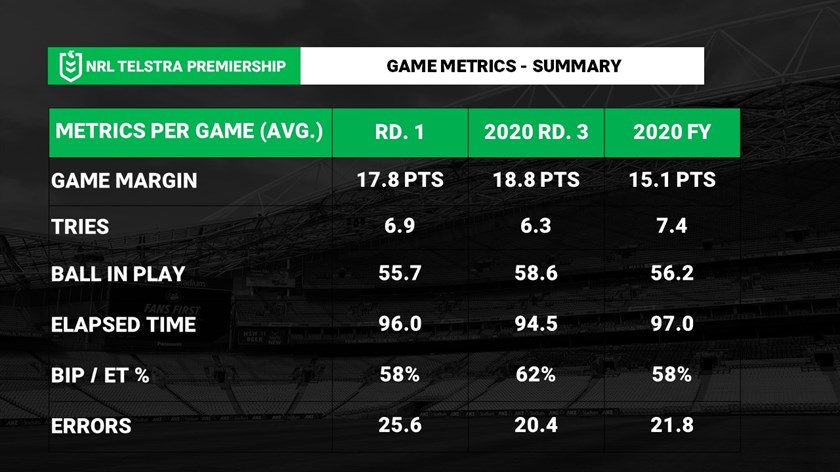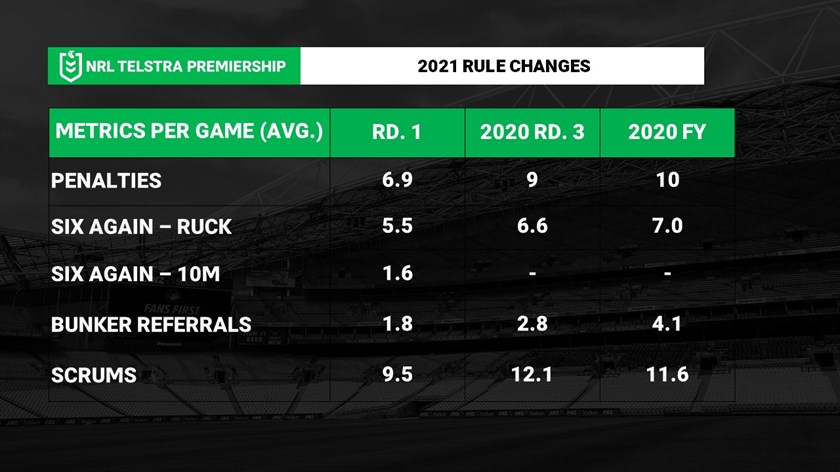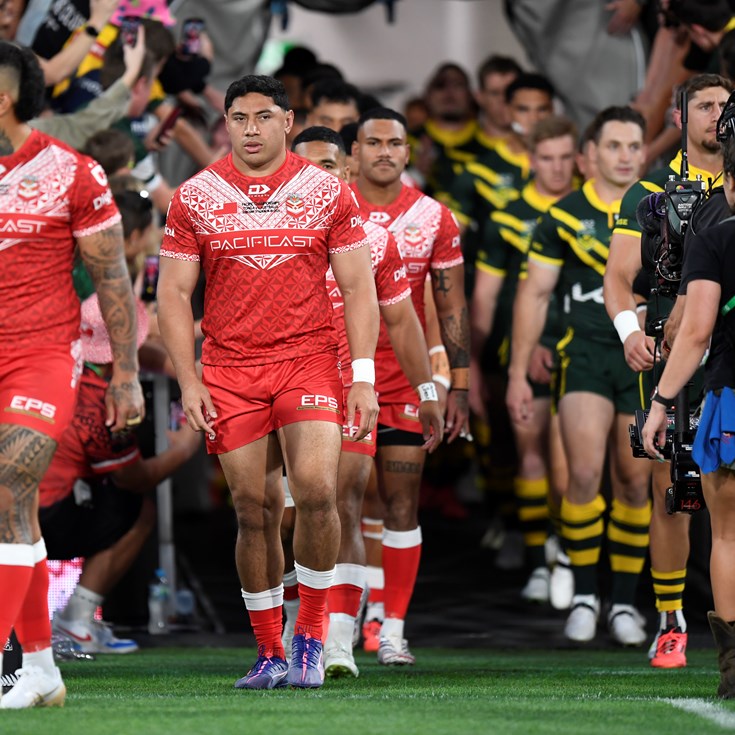
The NRL will now add "lost" time back to the clock to avoid wasting seconds in the period of a try being awarded and the Bunker conducting a formal review.
A rule change in 2021 has allowed the on-field referee to award a try while the Bunker checks for any issues in the background before a conversion attempt is kicked.
Only if a decision requires more thorough analysis will a Bunker review be called. It's hoped that less reviews will create a better viewing experience.
"The referee awards a try, we go back and we start getting ready for the conversion attempt," NRL head of football Graham Annesley said at his Monday media briefing.
"And the referee will then be told by the Bunker either, 'I'm still reviewing this', or 'I've got some doubts about this, you need to refer it back up so we can have a closer look at it'.

"The point has been made, and it’s a valid point, that that has resulted in some lost game time ... and we intend to fix it. So as of next week [round two], the timekeepers will adjust that lost period of time before the clock has restarted.
"What will happen is when the referee blows the whistle and awards the try, the timekeeper will take note of the time the whistle blows."
Annesley explained that if 15 seconds was lost in the time between the referee awarding a try and then referring upstairs on the Bunker's advice, that time would be returned to the clock before play restarted regardless of the final decision.
"In effect, we would've adjusted for the lost time between the awarding of the try and the referral to the Bunker. Both of which happened simultaneously last year," Annesley said.
There was an average of 1.8 Bunker referrals per match in round one, a significant drop from the 2020 average of 4.1 per game.
Annesley was pleased with a range of other rule adaptions.
Scrums dropped from an average of 11.6 last season to 9.5 per game in round one as play restarted with a play-the-ball when the ball or a player went into touch.
A high amount of errors – 25.6 per game compared to 2020's season average of 21.8 – contributed to the number of scrums and Annesley expects it to decrease.
The six-again rule being expanded to cover ten-metre offside infringements has seemingly deterred teams from shooting out of the defensive line illegally.
Only 1.6 ten-metre infringements were averaged per match.

"The report that I got from the referees this morning was they felt the players were more compliant around the 10 metres," Annesley said.
"I'd like to think that that's because the introduction of the six-again means that if you give away that additional six tackles, you don't get any break, you're constantly defending."
The ball was in play for 58 percent of the overall elapsed time – the same percentage as the 2020 season – but was slightly down compared to round three last year (62 percent) when the first iteration of the six-again rule was introduced.
Annesley believes that will increase as players gain match fitness and rhythm.
Elsewhere, Annesley said the Bunker made two wrong decisions – one being to disallow a try to Roosters second-rower Sitili Tupouniua for a knock-on as he gathered the ball after an error from Manly's Reuben Garrick.
Every try from round 1
The Bunker ruled Tupouniua's hands had come away from the ball as it touched Garrick, but Annesley admitted the ruling was "too technical" and said he thought one of the Tricolours forward's hands remained on the Steeden.
The other incorrect call was a successful captain's challenge to Penrith where hooker Api Koroisau fumbled the ball from dummy-half.
Annesley disagreed with the Bunker determination that Koroisau regathered before the ball hit the ground, though he noted he had ample time to dissect replays without being under the pressure match officials are under.
He also gave examples of correct Bunker decisions including a Raiders no-try due to an Elliott Whitehead knock-on and an overturned Panthers four-pointer because of a Paul Momirovski error.










